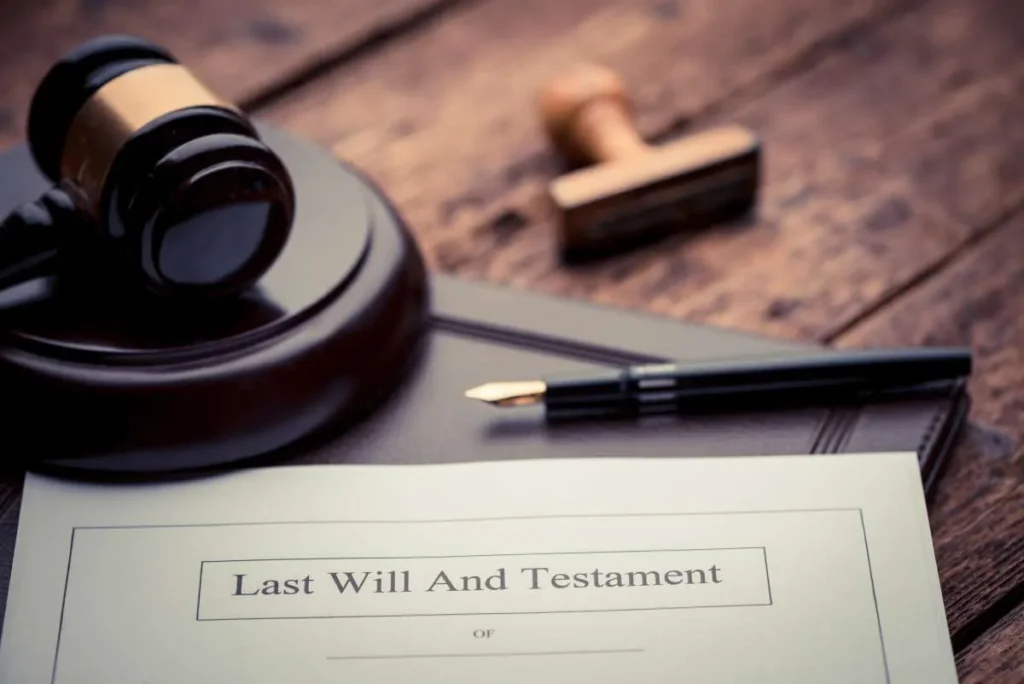If you’ve recently lost a loved one and you’re tasked with handling their estate, the first thing you might be asking is, “How to probate a will in Harris County Texas?” That’s a smart question—and one that’s more complex than most people expect. Harris County, which includes Houston and surrounding areas, has its own process, paperwork, and courtroom nuances. And if you’ve never set foot in a probate court before, it’s easy to feel overwhelmed.
Probating a will isn’t just about submitting some documents. It’s a legal process that determines how someone’s assets are distributed, and in many cases, whether their wishes are followed at all. If there are disagreements among heirs, missing signatures, or outdated documents, things can go sideways quickly. That’s why understanding how to probate a will in Harris County Texas before you file can save you stress, time, and money.
In this guide, we’ll walk you through each step, break down what makes Harris County unique, and offer practical tips based on real-life probate experiences in Texas.
What Is Probate, and Why Does It Matter in Harris County?
Probate is the legal process by which a deceased person’s will is recognized by the court, debts are paid, and remaining assets are distributed to beneficiaries.
In Harris County, probate matters are heard in one of the county’s statutory probate courts. Unlike general civil courts, these are specialized courts designed to handle wills, guardianships, and estate disputes. That means the process is more streamlined—but also strictly procedural.
If you’re asking how to probate a will in Harris County Texas, you’re dealing with one of the busiest and most scrutinized probate systems in the state. So being prepared is not optional—it’s essential.

Step 1: Confirm You Have the Original Will and Death Certificate
The very first step in probating a will in Harris County is locating the original, signed copy of the will and obtaining a certified death certificate.
The court will not accept a copy of a will unless a judge approves it after a formal hearing and testimony. So, if the original is missing, be ready for a longer, more contested process.
You’ll also need:
- The decedent’s full legal name and date of death
- The county where they died
- Any known assets or debts
If the person passed away in Harris County, you can request the death certificate through the Texas Department of State Health Services or the Harris County Clerk’s Office.
Step 2: Determine If the Will Can Be Admitted to Probate
In Texas, a will must meet specific legal requirements to be valid. It must be:
- In writing
- Signed by the person making the will (the “testator”)
- Witnessed by two credible individuals who are not beneficiaries
However, many wills created in Texas are self-proved, meaning they include a notarized affidavit that confirms the testator and witnesses met all the legal requirements.
If the will is self-proved, it can usually be admitted to probate without bringing the witnesses to court. That makes the process of how to probate a will in Harris County Texas far easier.
If it’s not self-proved, you’ll need to locate the witnesses and possibly bring them to court—or file an affidavit if they’re unavailable.

Step 3: Choose the Right Type of Probate
Texas offers several types of probate, depending on the complexity of the estate and the clarity of the will. In Harris County, the most common methods include:
Independent Administration
This is the most common type of probate in Texas. The will usually names an independent executor, giving them broad authority to handle the estate with minimal court oversight.
Dependent Administration
If the will doesn’t waive bond or court supervision, or if there’s no will at all, you may be forced into dependent administration, which involves frequent court filings and approvals.
Muniment of Title
If the only property in the estate is real estate, and there are no debts (other than secured mortgage debt), you might qualify for this simplified process. It allows you to pass title to property without appointing an executor.
Small Estate Affidavit
If the total value of the estate is under $75,000 (not including the homestead and exempt assets), and there’s no will, you may be able to skip probate entirely by filing a Small Estate Affidavit.
Knowing which route applies is crucial. Filing the wrong probate type will cost you time and additional legal fees.

Step 4: File an Application for Probate with the Harris County Clerk
You must file the Application for Probate of Will and Issuance of Letters Testamentary with the Harris County Clerk’s Office. This must be filed in the county where the decedent resided—or where the majority of their property is located. Filing in the wrong county can delay the process and may even result in a dismissal of your application.
The application includes:
- Name and address of the applicant
- The decedent’s name, date of death, and place of death
- A statement that the will meets legal requirements
- A request to be appointed as executor (if applicable)
This document must be signed under oath and may require additional supporting documentation depending on the estate. Be sure to double-check all details, as even small errors can delay your hearing.
Once filed, the court will set a hearing date—usually about 2 to 4 weeks out, depending on the court’s docket. During this time, public notice must be given so that creditors and interested parties have the opportunity to contest the application if necessary.
Step 5: Attend the Probate Hearing
Probate hearings in Harris County are typically brief—10 to 15 minutes in most cases. But don’t be fooled. Even a simple hearing can go sideways if the paperwork isn’t correct.
At the hearing, the judge will:
- Verify that the will meets legal requirements
- Confirm that proper notice has been given to all required parties
- Appoint the executor, if approved
The executor must then take an oath and possibly file a bond, depending on what the will states.
If the will is contested—or if there’s a dispute among heirs—this is where things start to get complicated. Having a probate attorney by your side is highly recommended.

Step 6: Receive Letters Testamentary and Begin Estate Administration
Once the executor is appointed, they’ll receive Letters Testamentary, which give them legal authority to manage the estate. These letters are often required to:
- Access bank accounts
- Transfer property titles
- Communicate with financial institutions
- Pay debts and taxes
From this point, the executor’s job is to:
- Collect and inventory the estate’s assets
- Notify creditors
- Pay valid claims and taxes
- Distribute the remaining property according to the will
In Harris County, the executor must also file an Inventory, Appraisement, and List of Claims within 90 days of appointment—unless the court grants an extension or waiver.
Real-Life Example: When Things Go Smoothly
Take the case of Denise, a retired teacher in northwest Houston whose mother passed away with a self-proved will, no debts, and a named executor.
She followed the Harris County probate process step by step:
- Filed the application through the county clerk
- Attended the court hearing
- Was appointed executor with no objections
- Completed the administration within six months
Because everything was in order and her mom had done careful estate planning, the process was painless. Denise described it as “easier than closing on a house.”
Real-Life Example: When Things Get Complicated
Now consider James. His father passed without a self-proved will, and his sister contested the document, claiming their dad was mentally unfit when he signed it.
That led to:
- Multiple court hearings
- A temporary restraining order blocking property sales
- A formal will contest that dragged on for nearly two years
James had to hire a probate litigation attorney and eventually settle with his sister outside of court—costing the estate over $40,000 in legal fees.
This kind of scenario underscores why understanding how to probate a will in Harris County Texas—and preparing for complications—is vital.
Tips for a Smoother Probate Process in Harris County
- Double-check all paperwork before filing with the clerk
- File early in the week to get a quicker court date
- Give proper notice to all interested parties and heirs
- Hire a probate attorney if the will is contested or unclear
- Be proactive with creditors—don’t wait for claims to snowball
- Communicate with beneficiaries regularly to avoid disputes
Final Thoughts: How to Probate a Will in Harris County Texas
The process of how to probate a will in Harris County Texas can be straightforward or complicated, depending on the clarity of the will, the relationships between heirs, and the presence of debts or contested assets.
Key Takeaways:
- Start by locating the original will and death certificate
- Understand what type of probate applies to your situation
- File with the correct court and attend the scheduled hearing
- Be prepared to act as executor and meet legal deadlines
- Seek legal guidance when disputes or uncertainties arise
Whether your probate case is simple or complex, taking the time to understand the process upfront is one of the best ways to protect your family, reduce stress, and honor your loved one’s wishes the right way.








